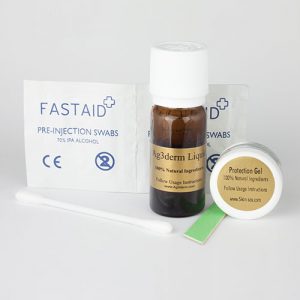Since keratosis, in general, leads to a darkening of the skin and blotchiness, you may wonder who to talk to about this problem and the answer is simple, a professional in this field.
The field we are talking about is dermatology as they are the skin specialists one would see should one experience keratosis.
Generally speaking, keratosis – a darkening or blotchiness along the nose, cheeks and other parts of the body– seems to strike pregnant women and women of child-bearing years more than any other group. Further, keratosis seems prevalent among darker-skinned Asians, people of Mediterranean descent and people of North Africa than others. There actually seems to be some good reasoning by nature behind this as these are the areas of the world where the sun is strongest and the skin needs the most protection.
That protection comes from the melanocytes that are the pigment producing cells that make melanin which causes the blotchiness to appear. Some experts believe that since this blotchiness is experienced almost 90 percent by either pregnant women or women of child-bearing years that it has to do with a hormonal predilection to the skin problem. Only about 10 percent of the people affected by keratosis are men and of those, many are young men who wear strong aftershaves and other sun-sensitive toiletries.
In all cases, the person to see if you find yourself suddenly experiencing a darkening or blotchiness of the skin is a dermatologist who has the facilities to diagnose and treat the problem. Diagnostic procedures may include exposure to special lights to confirm a diagnosis and then the doctor may prescribe a cream or ointment that contains tretinoin, alezaic acid or kojic acid, to help lighten any dark spots that may appear.
If you are unsure about which dermatologist to visit, check with your primary care physician, who should be in the loop as well, since this does affect your overall health, and see who your physician recommends and then use those recommendations. Your primary care physician is often in the best position to find just the right dermatological practice for you to use and may even have some experience in these matters so you must also make sure to close the loop between any dermatologist and your primary care physician. It is for your own good and it also makes eminent sense.

 Further Reading:
Further Reading:
